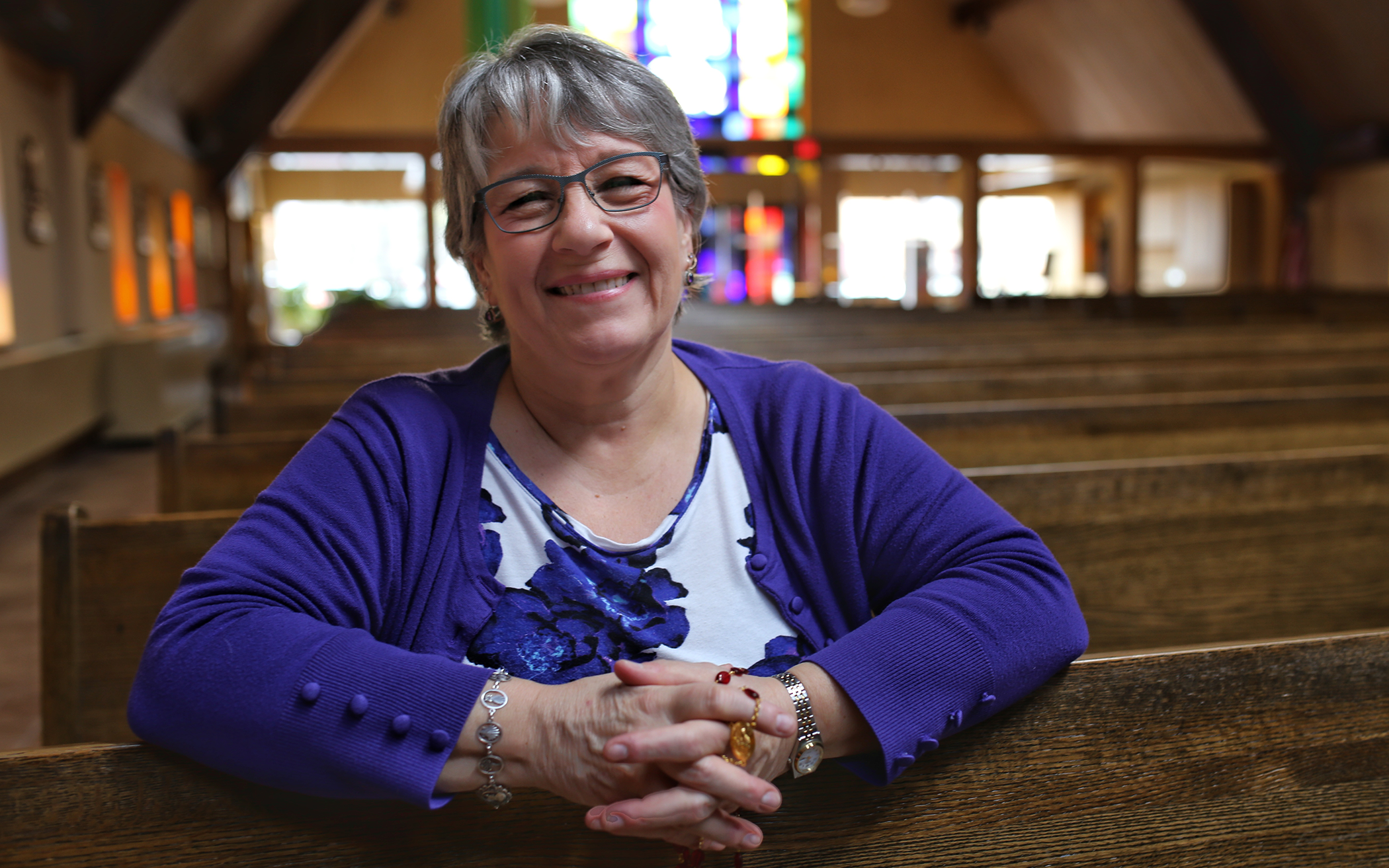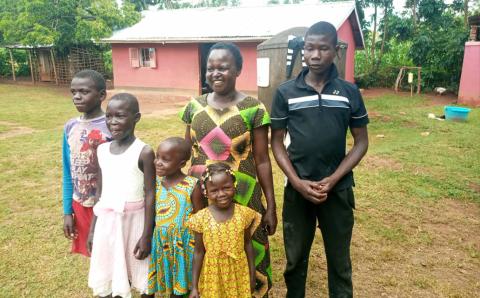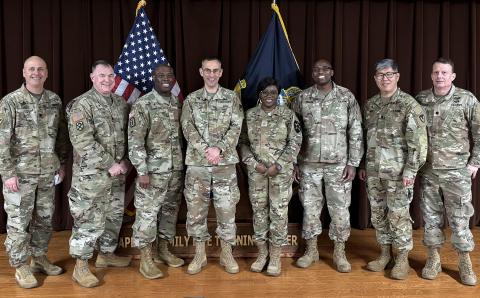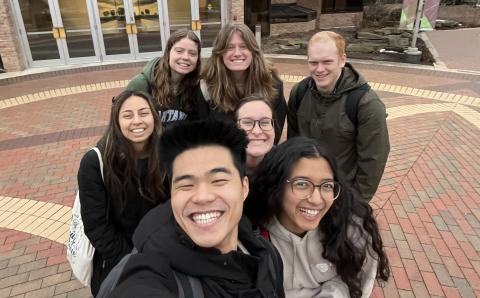In 1977 James Dobson founded Focus on the Family to, as their mission statement says, “nurture and affirm the God-ordained institution of the family.” Dobson’s organization was incredibly successful, having a massive effect on churches throughout North America and around the world. Even though ministry to families was always part of the church’s DNA, many churches became laser focused on supporting marriages and equipping people to be good spouses and parents.
However, according to the U.S. Census Bureau, 46.4% of U.S. adults are single. This includes those who are divorced or widowed and those who have never married. In 2022 the bureau reported that the median age for marriage has been steadily rising over the past 25 years and is now around 29 years old for men and women. A hundred years ago the average age for marriage was about 22. This means that there are more single people in the population than there used to be. We could spend a lot of time looking at the reasons for this demographic change, but regardless of the reason, the church often continues to act as if young parents and their children are the primary audiences for their ministry.
There are, of course, a number of ways to be single. According to a 2018 study by Pew Research Center, close to 40% of Christians aged 30 to 49 are single. Of that 40%:
- 17% have never been married
- 8% are living with a partner
- 14% are divorced
- 6% are widowed
To help us understand what it is like to be a single adult in the church we spoke with a number of singles ranging in age from late 20s to 60s. We heard insights into a theology of singleness, laments that single people sometimes feel misunderstood, and observations about how the church sometimes gets ministry to single people right and sometimes doesn’t.
While ministry to divorced and widowed people is important, their unique needs and perspective on being in church differ from those of never-married adults, so this article will focus on those who have never married, a group that makes up about 10% of Christian adults and an even larger percentage of the overall U.S. population—almost a third of American adults. Recent synodical decisions around same-sex relationships require gay CRC members to remain single, so thinking again about how singles are received in congregations seems timely. We want everyone, not just those who are part of a traditional nuclear family, to be able to live full lives as part of a community of believers.
‘Not a Problem to Be Solved’
In Genesis 1, God tells Adam and Eve to “be fruitful and multiply.” A number of writers have suggested that the phrase “be fruitful and multiply” doesn’t just encourage the bearing of children (something necessary when the population is as low as it was in Genesis 1,) but was expanded by Jesus in Matthew 28 when he said, “Therefore go and make disciples of all nations, baptizing them in the name of the Father and of the Son and of the Holy Spirit, and teaching them to obey everything I have commanded you.” And being fruitful does not need to refer only to children. In Galatians 5, Paul mentions the fruit of the Spirit: love, joy, peace, forbearance, kindness, goodness, faithfulness, gentleness, and self-control. Being fruitful can have a much broader meaning than it might have had in the first chapter of the Bible.
While Scripture uses marriage as a metaphor for Christ and his church, singleness can remind us that we wait for the second coming of Christ. Singleness is not merely the absence of a partner, but a particular state to which some are called. Some single adults spoke to us about the blessing of singleness. While society tells us we need another person to be whole, Jesus promises a relationship with him. It is possible to celebrate marriage and singleness without lifting one up over the other.
“We are not a problem to be solved,” said one of the women we spoke with. Others agreed; “People assume that we’re either looking to get married, gay, or a nun.” Some said they sometimes feel pity from others in the church. In contrast, we also heard that many of them find themselves living in a third space, one where they accept their singleness as a gift. Church history has a large number of examples of those who dedicated their lives to ministry without being married, including the apostle Paul.
Thrive (the congregational support ministry of the CRC) has often used the Building Blocks of Faith model as a way to think about what people of all ages need to grow in their faith. The first of these building blocks is belonging, one that seems especially applicable to single adults. We need to know that we belong to God and to God’s people, the church. (For more on this, see the Building Blocks of Faith Toolkit at crcna.org/faithformation/toolkits/building-blocks-faith-toolkit[1] . We mention only three of the building blocks in this article.)
A Welcoming Space
In our baptism we are joined to Christ, and we are joined to the church, God’s people. Just like everyone in the church, singles want to know they belong—not just in a grand, everyone-is-welcome-here kind of way, but in a practical and personal way. This starts simply with walking into church on a Sunday morning. Choosing where to sit in the sanctuary can be a weekly reminder of either their sense of welcome or of having no obvious home. One person we talked to notes that almost all families sit at the end of a row of chairs or a church pew, meaning that a person must either awkwardly climb over the group or ask them to slide over. Think about how much more welcoming it is for others if the empty places in a congregation are at the ends of rows rather than in the middle. This simple change in our Sunday morning habits can make a significant difference in the comfort level not only for singles, but also for visitors. (One thing we noted when talking to singles about many issues is how adjustments we might make for singles would also help many other people in the church too.)
One young adult single who had moved to a new community for a teaching job was standing in the back of a church one Sunday morning when a young family with children invited her to sit with them. That invitation soon became an ongoing relationship, and sitting with that family became the expectation. That simple step made a huge difference in this young teacher’s comfort in going to worship. She belonged. People were looking for her. She was expected.
One person said that going to church potlucks was like being in her middle school cafeteria all over again. Memories of all the typical middle school social interactions and anxieties made her reluctant to attend. If church members proactively make room for singles and invite them to join a family group, this anxiety could be significantly reduced.
The singles we spoke with know that when they are ignored or when thoughtless things are said, church members are not ill-intentioned. No one is trying to make them feel awkward. But things happen that, from the perspective of a single adult, remind them that they are considered to be “different.” For example, when a single person visits a church for the first time and someone meeting them says something like, “Oh I have to introduce you to … ,” mentioning one of the only other singles in the church, it reinforces the assumption that the person’s singleness is their most important characteristic. Again, the greeter was only trying to be helpful to both single people, but it is all part of a tacit view that being married is the norm and that remaining single makes someone “other.”
Having events in the church that send a clear message that the inclusion of singles is expected can help. One example is a program some churches have used called “Dine with Nine.” People can sign up either to go to dinner at someone’s home or to host people. The couples and singles are then randomly distributed among those who have agreed to host. The name “Dine with Nine” suggests to everyone that an odd number of people are expected to attend and that unaccompanied people are a natural part of the church.
In a study conducted for Missio Alliance, Jen Ashby found that having positive relationships with other people in the church had the greatest impact on single adults’ sense of inclusion. It made little difference whether these relationships were encouraged by formal church programs or if they happened organically. This is one of the most obvious things a church can do to make singles feel as if they truly belong. One of the people we interviewed said, “Invite us into families and events. We’d love to have dinner with you!”
In Ashby’s study, relationship building was enhanced for many singles through involvement in a small group. Almost the same number of single adults said that involvement in volunteer opportunities added to their sense of belonging.
Called and Equipped
Another of the Building Blocks of Faith is to recognize that we are called and equipped. God gives each of us callings, and we have been uniquely equipped to answer those calls. Many see their singleness as a call, at least for this season of their lives. Single people are not more called to ministry than married people, but one of the men we talked to wondered aloud if perhaps he was being called to ministry in a place that would not be conducive to living with a family—perhaps as a missionary in some other part of the world. He even noted that he would be more able to do ministry that could be considered dangerous. While he was unique among those interviewed in his understanding of what God might have in store for him, others noted that they feel particularly able to do some kinds of lay ministry. If, for example, someone needs emergency help, singles are often more able to jump in at a moment’s notice because they don’t have to coordinate their schedules with others or arrange care for children.
At the same time, single people don’t necessarily have more free time than married people. One person said that she is responsible for all the household tasks because she lives alone. Those things that in many households are shared by a couple fall to just one person. She warned that singles should not be seen as people with endless amounts of available time.
Doing Better
The bottom line is that all of us want single people to be in our churches and to feel fully comfortable in our fellowship. Single people need the church, as all of us do, and their unique perspective makes us a better representation of the family of God. But the church can do better and should rethink the way we do some things. We should ask singles to help us imagine how what we do affects people who come to church alone or don’t have a spouse to share things with. One person summarized it well: “Don’t assume we’re lonely. Singleness is a cycle. Sometimes it’s great, and sometimes it is hard.” One of our group semi-jokingly said, “The church needs to step up. Who’s going to take me for my colonoscopy?” She’s right. The church needs to step up.
Another Building Block of Faith is a knowledge of the hope we have in Christ for the future building of the kingdom of God. Singles share that perspective, which often flows out of our particular understanding of how we have been called and equipped to live our lives in service to God’s kingdom. This mission of the church to bring hope to the world is not restricted by marital status. But it can be restricted by the way we in the church pigeonhole those who are unmarried.
Recognizing singles as full adult members of the church even though they don’t come with a spouse or children is an obvious first step. The problem comes when we see the traditional nuclear family as God’s intention for everyone and the vehicle through and for which the bulk of our ministry should be delivered. Becoming more inclusive of singles isn’t just another program for the church to start. It is about a mindset change for all of us.
Discussion Questions:
- Do you agree the church has largely focused too much on families to the detriment of single people? Why or why not?
- What steps can we take to shed the prevailing approach to single people as “problems to be solved”?
- What are some good examples from your own experience of including single people into the life of your church?
- Which of the article’s examples or ideas struck you as something you and your church can try and apply?
About the Author
Laura Keeley is a former regional catalyzer in faith formation with Thrive, the ministry agency of the Christian Reformed Church. Robert Keeley is a professor emeritus of education at Calvin University. The Keeleys recently retired after 31 years as directors of children’s ministries at 14th St. CRC in Holland, Mich.









